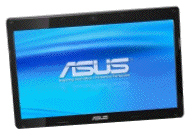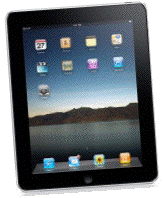
 iPad as coral reef
iPad as coral reef 
 Interesting tech products often spawn ecosystems like shipwrecks spawn coral reefs.
Interesting tech products often spawn ecosystems like shipwrecks spawn coral reefs.
It's an old story, which I've written here on Scripting News many times. A ship sinks in a tropical ocean and fish come and live in its hull. Then their predators show up, and pretty soon there's a food chain. Many generations later the skeletal remains of the first fish get so dense they solidify and form rocks around around the remains of the ship. Pretty soon you can't find the wrecked ship.
Radio UserLand, a product of mine, formed a coral reef called RSS. There are many other examples.
So today Asus announced two tablet computers. The Apple fanboys sniff, but I bet they'll be good. At first I was concerned that Asus might try to write the software themselves. I use their products, and love them, but their software is Taiwanese and doesn't translate well to English. Lots of happy animal cartoon characters and funky messages that make as much sense as All Your Base Are Belong To Us. Instead they're going to have two models, one that runs a Google OS and another that runs Windows.
You can sniff all you want but I would be surprised if the Asus products aren't better than Apple's in some ways. It could be that Apple understands the value of battery life, a technology that Asus has mastered. Today you can buy a $350 netbook that claims 14.5 hours on a single charge. It's not likely that you'd actually get more than 8 hours on a charge, but that's huge. I have a netbook that was rated at 10.5 hours, and in practice, I'm using it all day as much as I want, even on a cross-country plane trip, and I never look for an outlet to charge it. I don't even bring the charger most times. In contrast Mac users are always tethered to a power outlet. On Monday I forgot to bring my power brick for the Mac to the studio at 20 Cooper Sq, and I used 75 percent of the charge in a single hour. You can see it at conferences too. The Mac users are all grouped around power outlets. The netbook users are spread out everywhere else.
Another thing I know Apple doesn't care about is price. There's no Asus netbook you can buy for as much as $499, but that's the entry-point to the iPad market. For me the iPad is worth $499 because I'll learn from the design of the product. Maybe you will too. But most people just use the things. Sure the iPad breeds lust that Asus likely won't, but at some point these have to be pragmatic products or else they'll just stay in a drawer at home. I bet the Asus products win some pragmatism points relative to Apple.
Regardless, until this year there was no market for tablet computers. Microsoft tried to push them, but to no avail. People didn't want them. Now finally there's going to be an installed base of tablets. We'll find out for sure, one way or the other, if they're useful. And if they are, there will be lots of options to choose from, unless Apple hits every point (and they won't).
There's one thing we know for sure -- Apple will control the gate for software for the iPad and Microsoft and Google don't. That, for me, is a huge difference -- freedom.
 NYC Hackathon at NYU, Apr 2-3
NYC Hackathon at NYU, Apr 2-3 
 Hype-wise, Apple pretty much owns this weekend. Even though I swore I would sit this one out, I broke down and bought an iPad, scheduled to arrive on Saturday.
Hype-wise, Apple pretty much owns this weekend. Even though I swore I would sit this one out, I broke down and bought an iPad, scheduled to arrive on Saturday.
But before that, starting on Friday night at Courant Hall on the NYU campus, there's the NYC Hackathon. As I understand it, the goal is to get students from New York-area universities to meet New York-area startups, who will pitch their APIs, hoping to attract interesting overnight projects from the students, and longer-term interest once they enter the workforce.
I'll be there on Friday evening as an "ambassador" -- trying to help the students and entrepreneurs connect. I can be useful during the ideation stage, but I might try working on a project myself.
There's also an iPad party on Saturday night at Gawker, which I plan to make a stop at. It's all in the neighborhood! ![]() ">
">
The hackathon is a project of Chris Wiggins of Columbia, Hilary Mason of Johnson & Wales University, a member of NYC Resistor, and the lead scientist at bit.ly (a NYC startup); and Evan Korth of NYU. I've met both Chris and Evan and look forward to meeting Hilary.
And if you're in the area, with either an API or some undirected programming energy, maybe I'll see you at the Hackathon.



